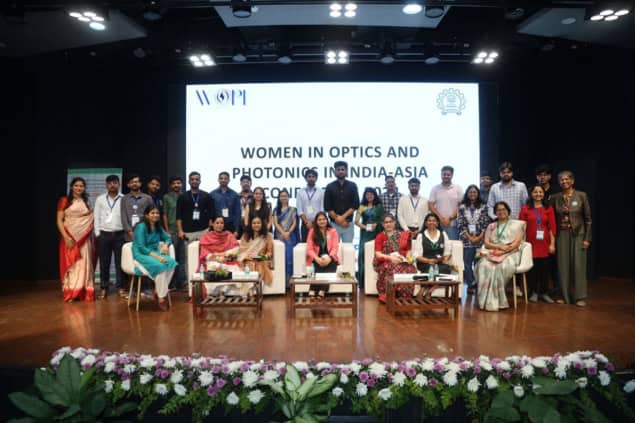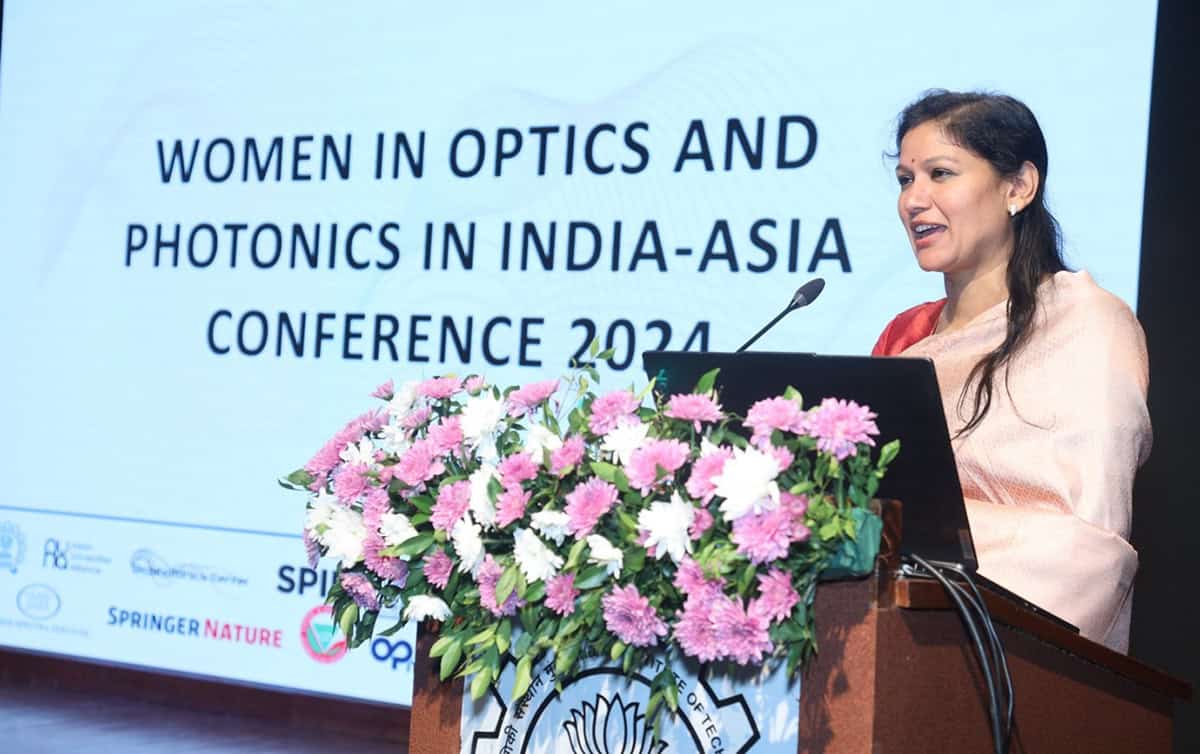Sarika Joshi says it is important to create an environment where students are never afraid to ask questions – no matter how simple they might seem

It was a crisp, chilly morning in Bombay (Mumbai) on 4 December 2024 as delegates made their way to the Indian Institute of Technology, Bombay (IITB) for the opening day of the Women in Optics and Photonics in India-Asia (WOPI) conference. The cool, air-conditioned auditorium was soon packed with almost 300 people – mostly female postgraduate students and researchers – with notepads in hand and lanyards around their necks, eager to learn from the talks ahead.
The three-day event was organized by the IITB and sponsored by institutions, companies and publishers, including IOP Publishing, which publishes Physics World. Aimed at highlighting female voices that often go unheard, the meeting brought together scientists and experts from all over the world.
Yet not everything went according to plan. Although the room was full of curious students, each time the floor opened for questions, nervous glances were exchanged. A few moments of silence lingered as though everyone was waiting for a “better” question to come along. The silence rung of missed opportunities.
This kind of reticence is not new. From classrooms and labs to meetings, we see hesitance by students, and especially female students, everywhere. Growing up, I was told to look up the basics first and only ask so-called “high-level” questions. Good advice in theory but not if you’re already unsure of your place in the room. Add to that a dismissive answer such as “You should have known this by now” and the urge to speak up is nipped right in the bud.
Perhaps the hesitation is understandable. We live in a world where every answer is an Internet search away. Why ask a “silly” question when everyone else probably already knows better – or at least looks like they do? Yet asking questions is a fundamental part of learning. Science doesn’t move forward because people stay quiet until they have the perfect question, it moves because someone dares to ask – even when they aren’t sure.
Another contributing factor to such silence is imposter syndrome – the feeling that you don’t deserve to be there and aren’t good at your work. Multiple studies have shown that women consistently score higher on measures of imposter syndrome than men. Women in technical fields such as engineering, science and maths also report lower self-efficacy than men, regardless of actual performance or ability – so not only do we question whether we belong but we also underestimate ourselves.
All of this means women are less likely to ask questions or speak up when uncertain. But for a scientist, uncertainty is the norm. We spend most of our time sitting with the unknown and with it the need to ask questions and chip away at it. Yet the very process of scientific inquiry can feel to women like a trap.
A new way
So what can we do differently? Events like WOPI create time and space not just for presenting research and innovation, but for mentorship, for insight into the real-world machinery of science. It’s not just about “What are you working on?” but also “Where are you heading, and who’s with you?”
WOPI 2024 modelled a new approach to inclusivity by running panel sessions that included the families of successful leaders to showcase the kind of support that is necessary to “make it”. Women were invited who fearlessly shared their stories of pivoted careers and/or failures, while acknowledging the challenges that they encountered along the way. It reminded us that you don’t just grow by knowing but by asking, exploring and doing.

But we need to do more. Encouraging young female scientists today means accounting for the weight of cultural expectations, social atmosphere and gender-based tendencies. Events and conferences need to go beyond formal settings to highlight not just the science but the scaffolding that holds it all together – networking, informal mentorship, vulnerability and visibility. This must be integrated into the very fabric of all scientific events, not just those for women.
The real pulse of the WOPI conference was in the moments after the talks – students lining up to talk to speakers. Nervous, curious and determined to ask their questions anyway. That moment stayed with me. It was steadfast curiosity that had survived immense self-doubt and fear of speaking in front of an audience.
Hopefully at the next WOPI meeting to be held in India in 2026, students will be much more confident in asking questions. So, to every student: don’t wait for the perfect moment. Ask the question that’s been sitting at the edge of your mind, making you wonder. After all, that is where discovery starts.



